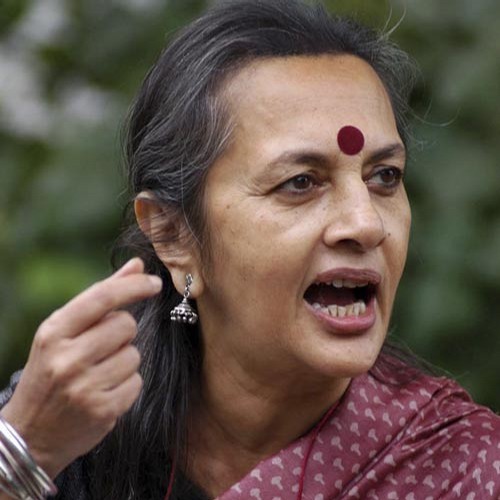
Brinda Karat
General secretary, All India Democratic Women’s Association
There are two or three key issues that need to be kept in mind when intervening in the controversy over triple talaq. Generally speaking, if one looks at the position of all women, that is women belonging to all communities, their position in all aspects of life is worsening. Whether it is the issue of domestic violence or inequalities across the board, there is a marked increase in the violence against women that we are seeing through our work all over the country.
We run 125 area-based cells for women across the country. If in a certain locality a particular community is predominant, many more women of that caste or community come to our cells there. Therefore, in certain areas we have a predominance of Dalit or Muslim women approaching us for assistance. We have found through this experience that if there is anything truly ‘secular’ in India it is the violence against women.
A very basic and important aspect of our approach is the framework through which we approach the issue and on the basis of which we arrive at our understanding and perspective of the issue. Therefore, for us to see the triple talaq issue as a religion-based issue alone is not right.
It is true that dowry related violence and killing predominantly affects one community just as triple talaq affects only Muslim women. But what people fail to see is that the status of women across the board is under assault and being undermined.
Taking a second wife is very common, across the board, in all communities, whether the personal law allows it or not. Violence against women – severe beating, slapping around, being thrown out of the matrimonial home, is also common to all communities, whether society at large, the community, political parties, etc. acknowledge it or not. Likewise, among Muslim women, triple talaq is certainly a matter of great concern.
Now, what do we as an organisation do when faced with this form of unfair and brutal treatment? The most important thing to remember is that as an organisation we believe in a multi-dimensional approach. We believe that a woman has different choices. She can go to court, negotiate a settlement with a local maulvi, or seek the support of a local women’s organisation. The important thing for us is that it is the Muslim woman down there who is facing the situation. She is the protagonist who is fighting for herself and her children. She is fighting the family, her community and the State. It would be well for campaigners to remember whom they are fighting for.
Hence, for us as an organisation, given the aggressively polarised situation in India where the woman is a prime target of communal violence, there is a broad preference to resolve the issue of triple talaq within the framework of religion itself. So, while we know that the stance of the Muslim Personal Law Board has been indecisive, etc., given the ground-level situation, we believe that we need to engage with them even as we, as an organisation, also support women who have gone to court on the issue of triple talaq.
While there may be some who are of the view that we should not engage with the AIMPLB because they are non-secular, we feel that they are part of the different choices a Muslim woman in India has. She can go to court, she can go to the local maulvi, she can go to a women’s organisation. If she feels that she needs to demand a greater share from the AIMPLB or Wakf Board, say, to ask the latter why they are not spending wakf money for women’s shelters, she should have the right to make that demand and it is for us to support it.
When protest against anything, even a practice like triple talaq, becomes polemical and part of the political agenda of groups who do not necessarily have any concern for the plight of women in general, or Muslim women in particular, it becomes problematic.
In the context of the recent incident in Orissa (see box), we are in the process of launching a mass protest and campaign against the practice through a leaflet where we will solicit men and women of all communities – not just Muslims – to say that such a practice is wrong. Then, at a general level, this specific issue must fit into a wider campaign about the Indian Constitution, women’s rights and gender. At an individual level, the intervention must have an appreciation of the position of that individual Muslim woman, the protagonist.
This is an approach that we like to follow in all our campaigns and protests because we believe, fundamentally, that when any issue is looked at or approached from a religious point of view it gets polluted and vitiated. The issue must remain gender-based.
With religious fundamentalism on the rise and identity-based groupings on the upswing, with aggressive community-driven violence and its retrograde rhetoric vitiating the political atmosphere, we believe that it is unethical for a political campaign to victimise the victim, that is, the Muslim woman, further. We believe that it is ridiculous to expect reform in one area when all around – politically and socially – we are regressing as a polity. The shoulders of a Muslim woman have always been bent with the plight of her existence. Now, with aggressive Hindu communalism, they have been further bent in humiliation by brutal sexual violence. At a time like this we believe a humane, multi-dimensional approach that not only recognises her plight through practices like triple talaq, but also strengthens her capacity to fight them, is the right ethical and realistic approach.
Archived from Communalism Combat, July 2004 Year 10 No. 99, Cover Story 9